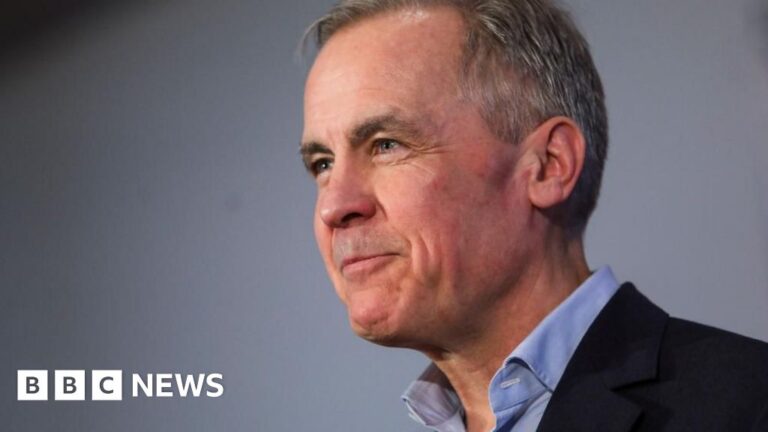Former Bank of England boss Mark Carney is now running for the leadership of the Liberal Party in his native Canada. What does his stay in London tell us?
Mark Carney was the first non-British person to become governor of the Bank of England in its more than 300-year history when he took up the role in 2013.
He previously worked for investment bank Goldman Sachs and served as governor of the Bank of Canada, the country’s central bank.
He took up the role in 2008, just months before the peak of the Great Financial Crisis – and his success in the role paved the way for a move to London.
He had long-standing links with the United Kingdom, having studied two degrees at Oxford University and marrying an Englishwoman.
During his time at the Bank’s headquarters in Threadneedle Street, he oversaw considerable changes in the way the Bank operated. Early in its tenure, the Bank assumed responsibility for financial regulation following the abolition of the Financial Services Authority.
He is credited with modernizing the Bank, appearing much more frequently in the media than his predecessor.
In 2015, the Bank reduced the number of interest rate meetings from 12 to eight per year and began publishing minutes alongside the announcement of interest rate decisions.
Interest rates were anchored at historic lows when he took office, but he introduced a policy of “forward guidance”, in which the Bank would attempt to further support the economy and encourage lending in pledging not to raise rates until unemployment falls below 7%.
Confusion over the policy led one lawmaker to compare him to an “unreliable boyfriend,” a nickname that stuck long after the initial controversy died down.
Unlike previous governors who generally kept a low profile, he made controversial interventions ahead of two major constitutional referendums.
In 2014 he warned that an independent Scotland might have to hand over its powers to the UK if it wanted to continue using the pound.
Before the Brexit referendum, he warned that a vote to leave the EU could trigger a recession.
He addressed the nation shortly after David Cameron resigned as Prime Minister following the Brexit vote, in a bid to reassure the country that the financial system would operate normally.
He described the day as “the most difficult day” in his job, but said the contingency plans put in place by the Bank worked effectively.
The Bank then reduced interest rates from 0.5% to 0.25% and restarted its quantitative easing program to support the economy.
Its final week of March 2020 saw the start of the most acute phase of the Covid pandemic: the Bank cut rates by 0.5% to support the economy, and Mr Carney told the country that the shock economic “should be temporary”.
His time at the Bank also allowed him to gain extensive experience in dealing with Donald Trump, which would be useful to him if he became Prime Minister of Canada.
From 2011 to 2018, he chaired the Financial Stability Board, which coordinated the work of regulators around the world, giving him a key role in the global response to the first Trump presidency.
He was a regular at G20 meetings, with a direct view on Trump’s attempts to disrupt the international order.
He is also known as an advocate for environmental sustainability. In 2019, he became United Nations special envoy for climate change and in 2021 launched the Glasgow Financial Alliance for Net Zero, a grouping of banks and financial institutions working to combat climate change.

